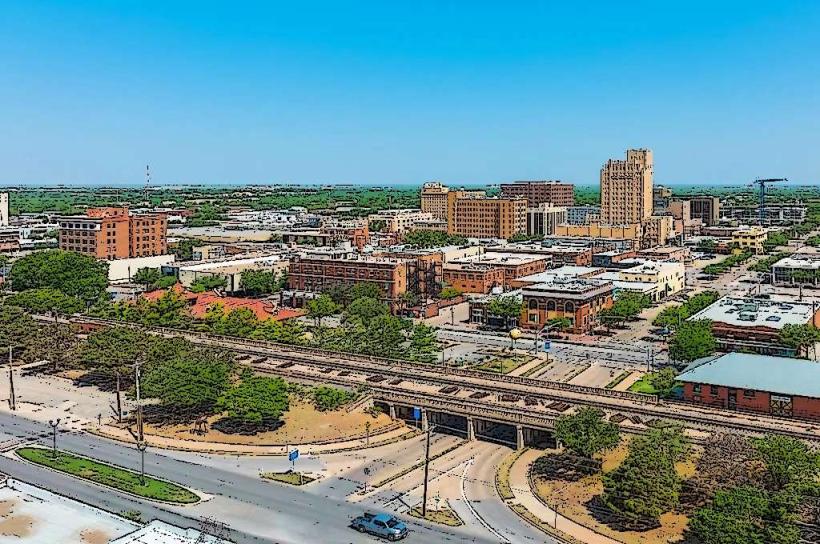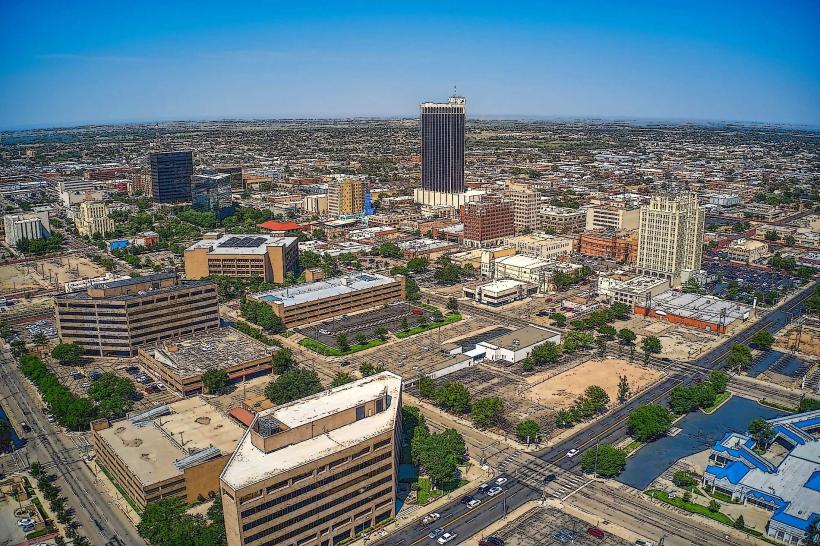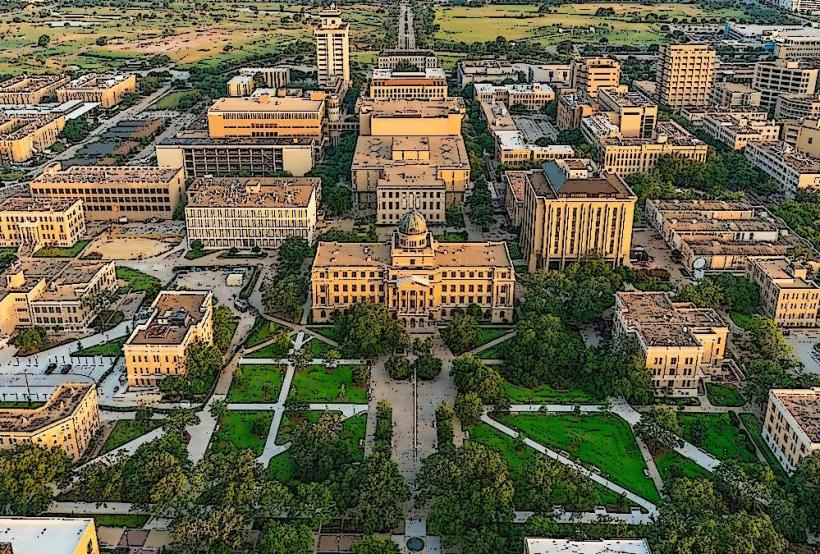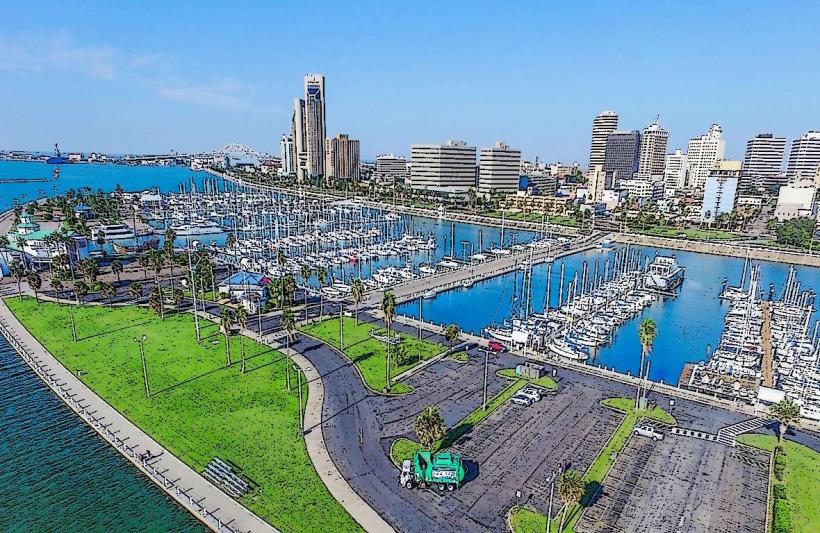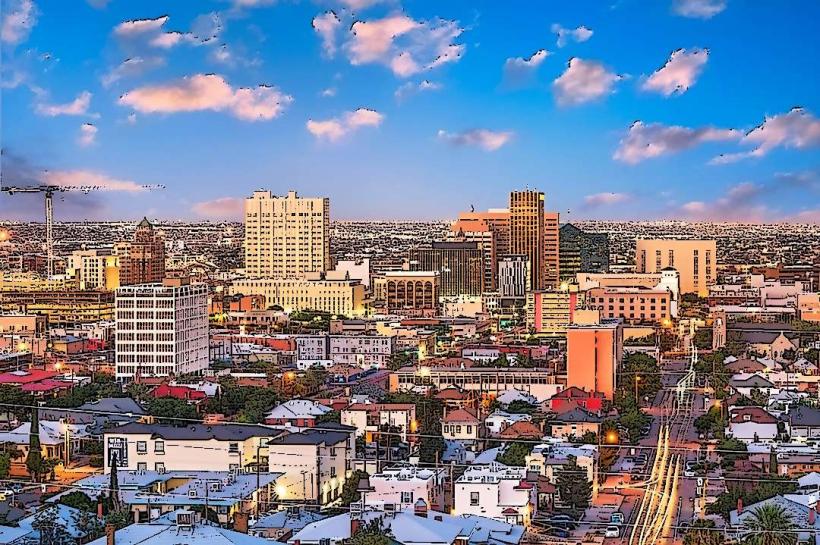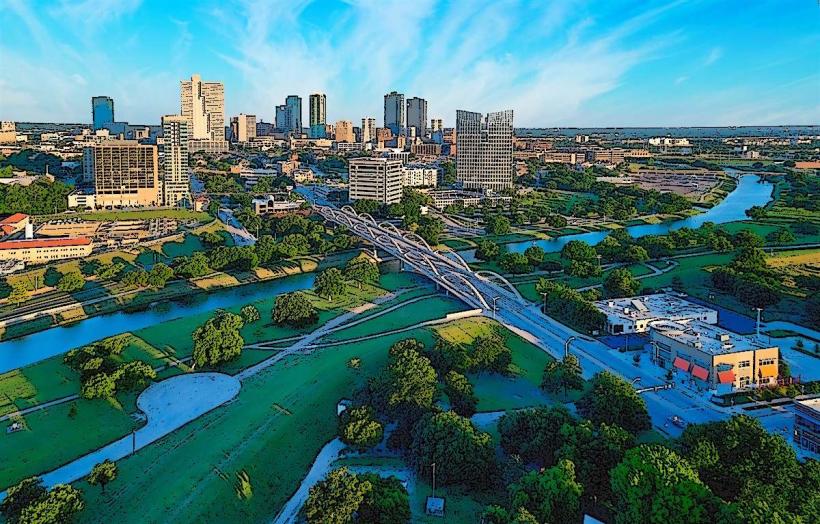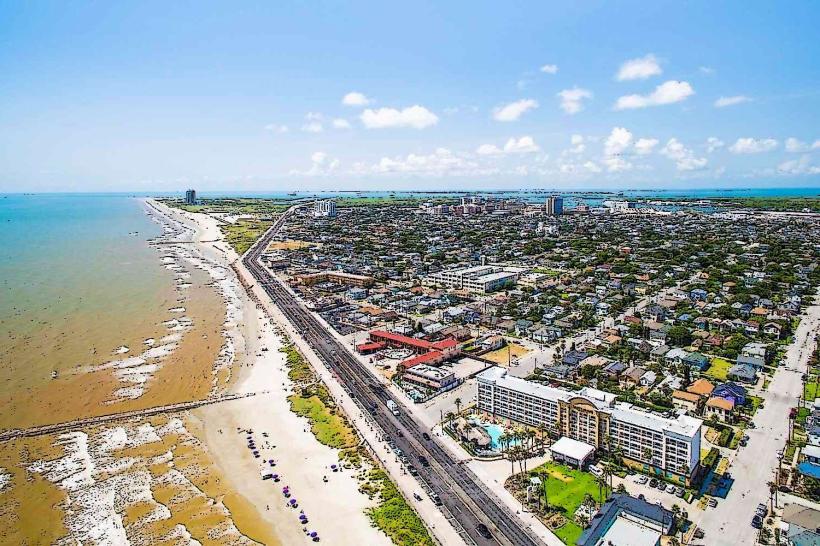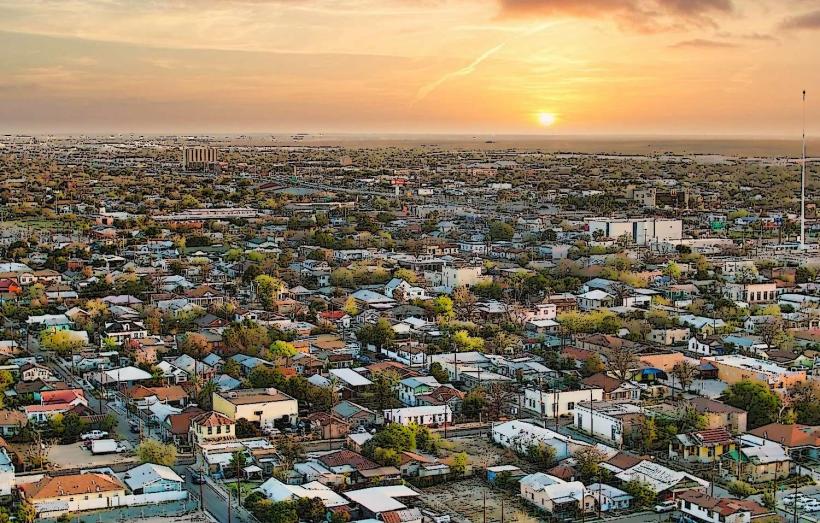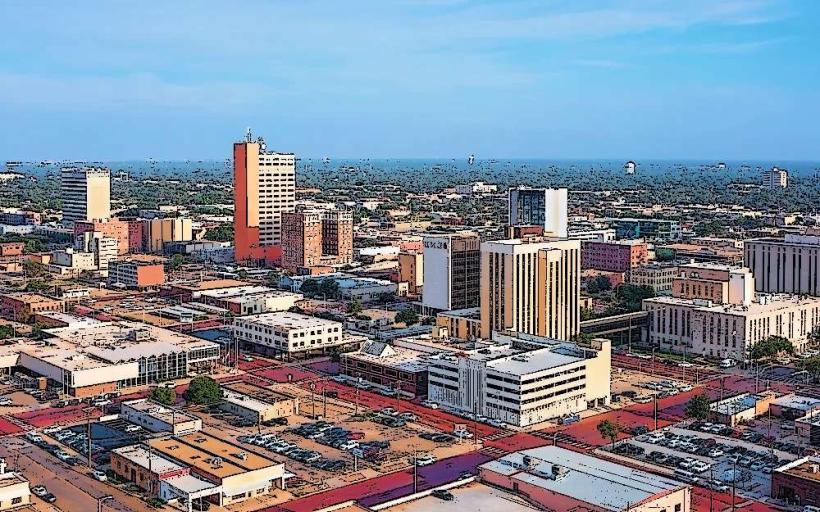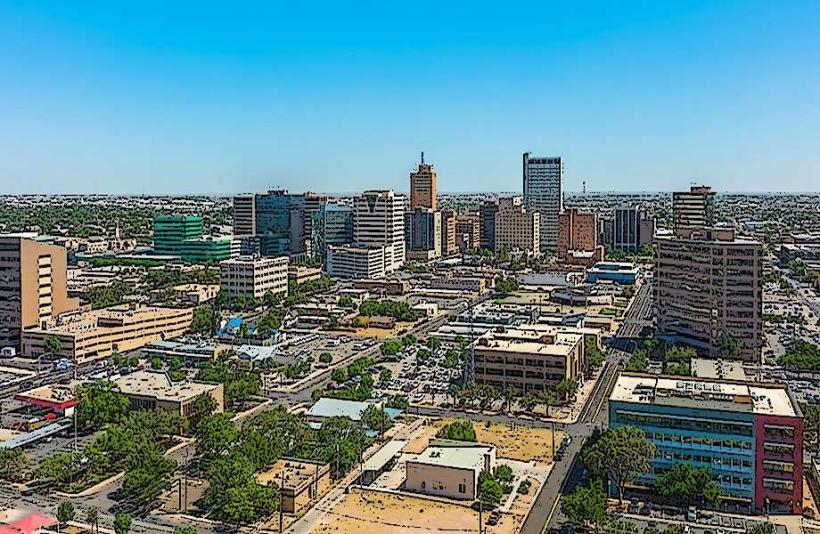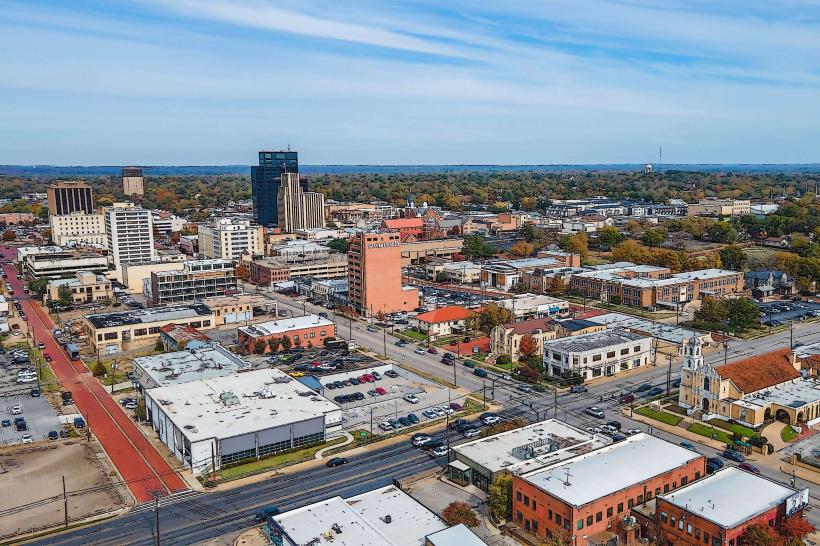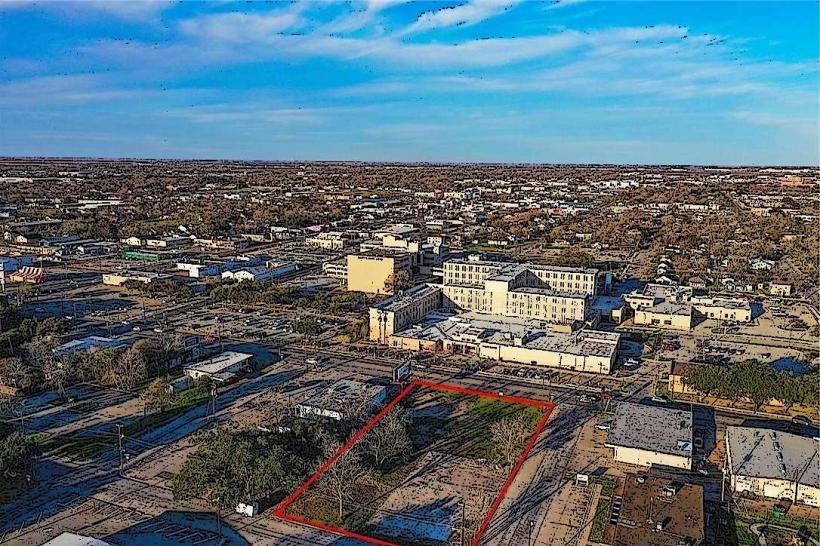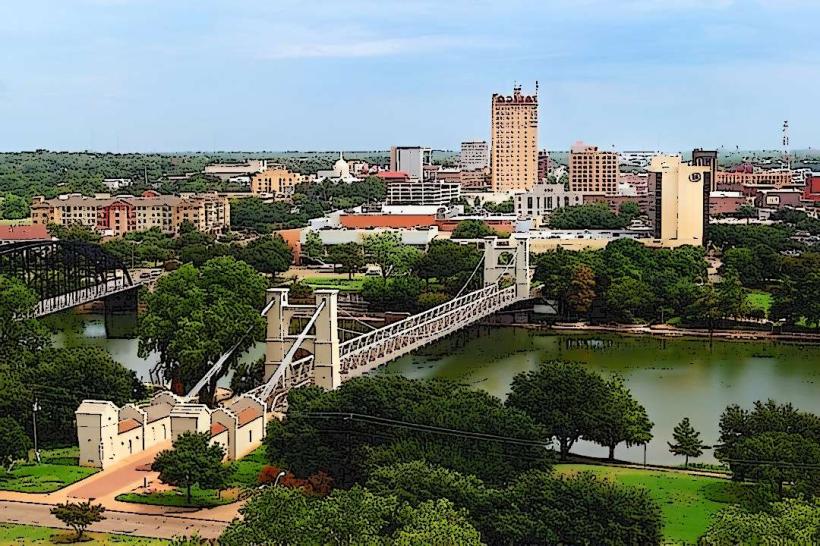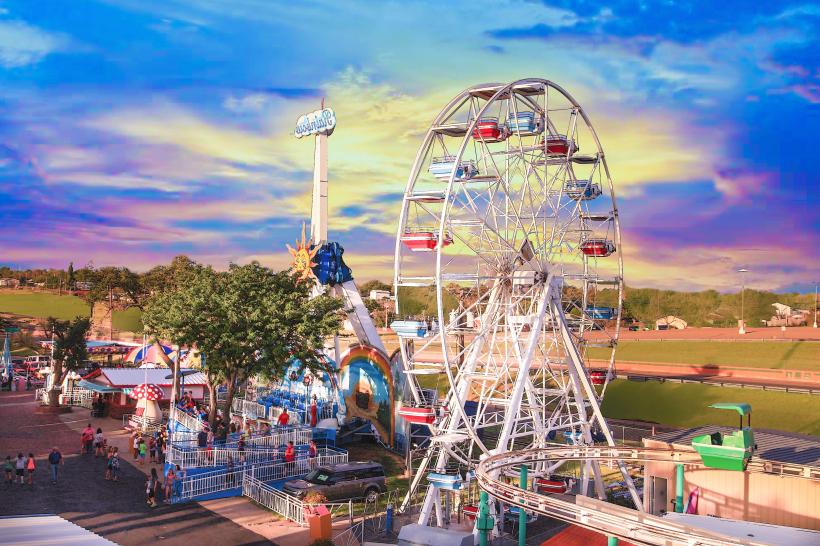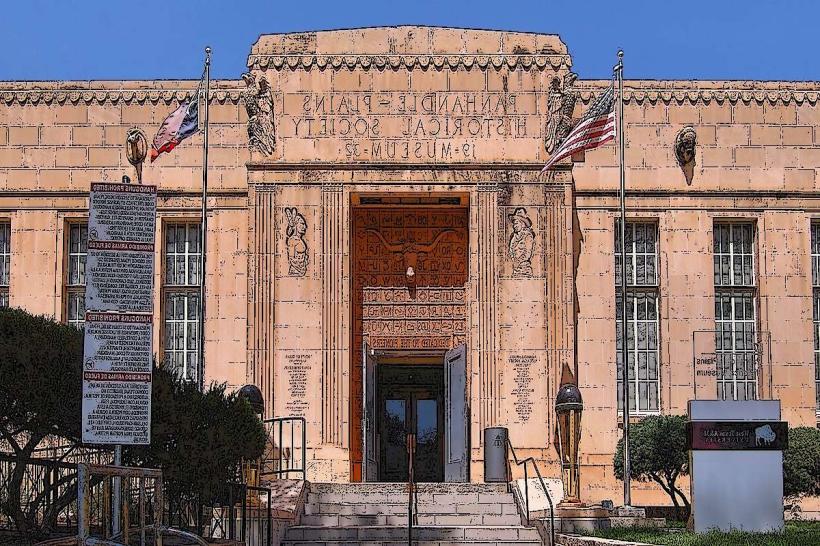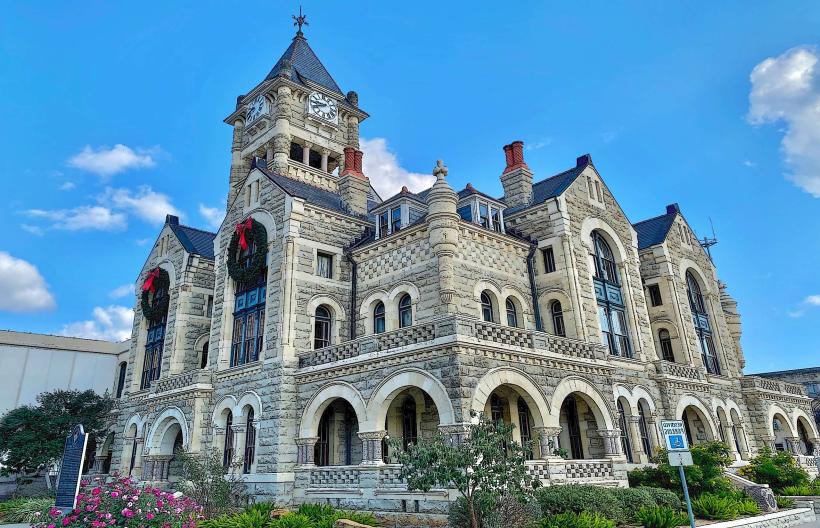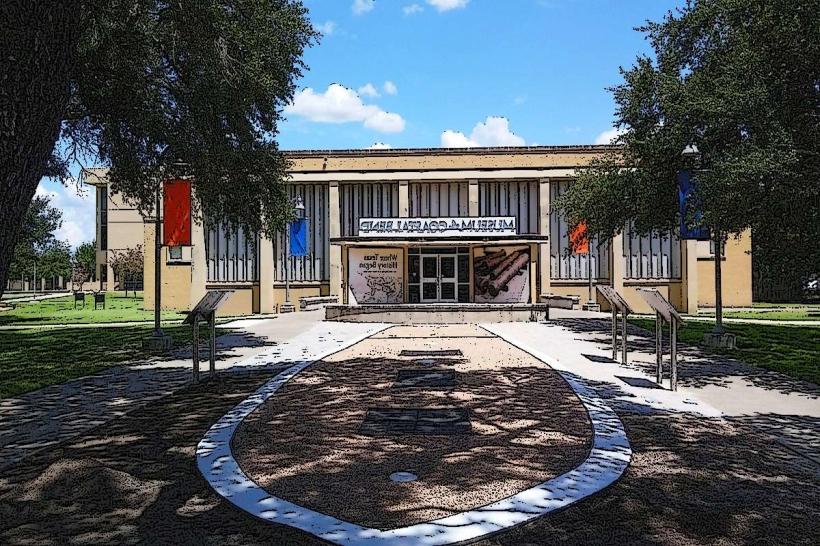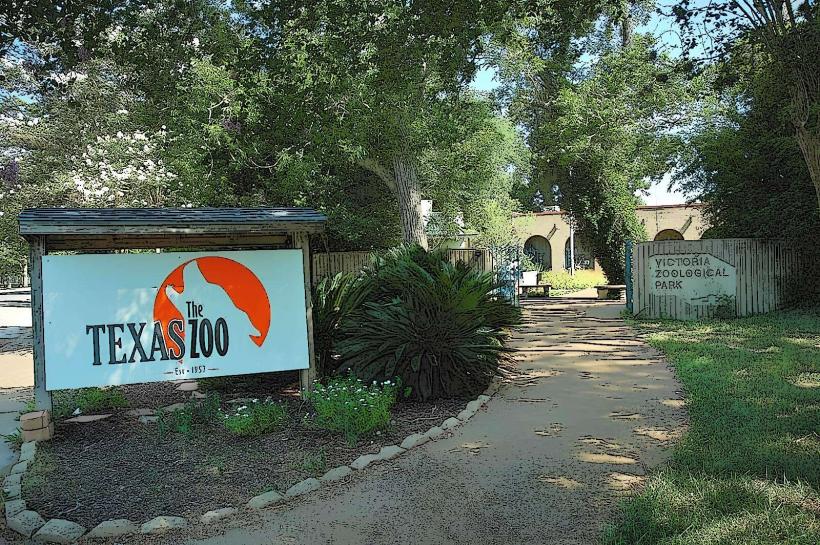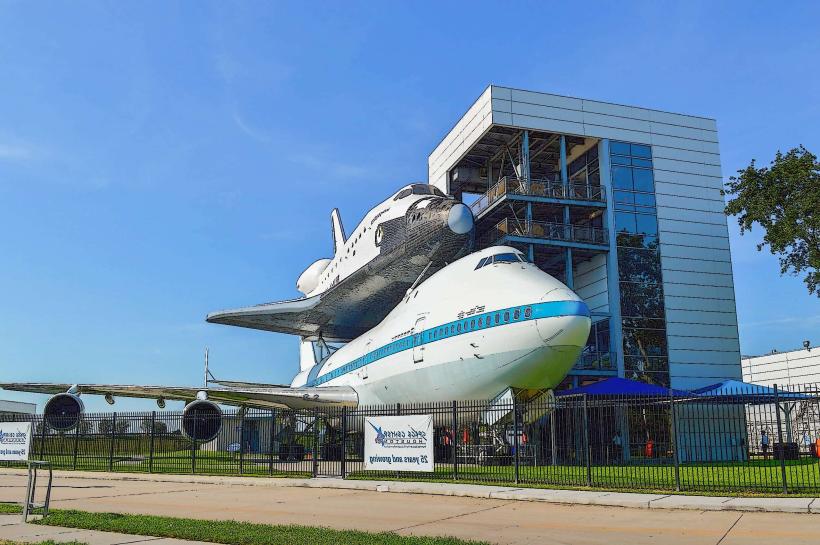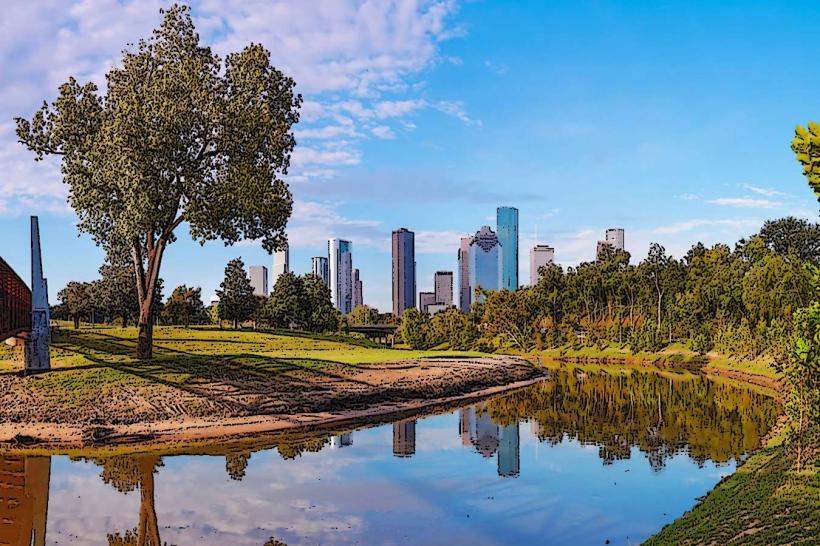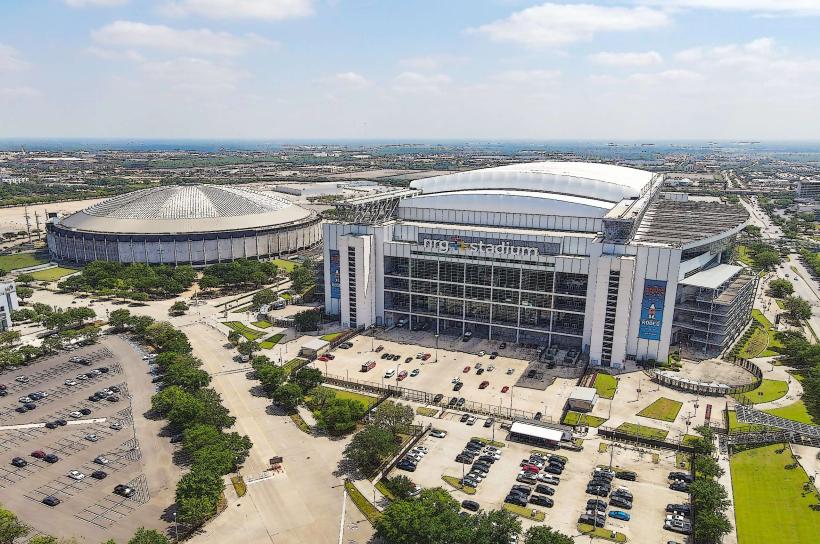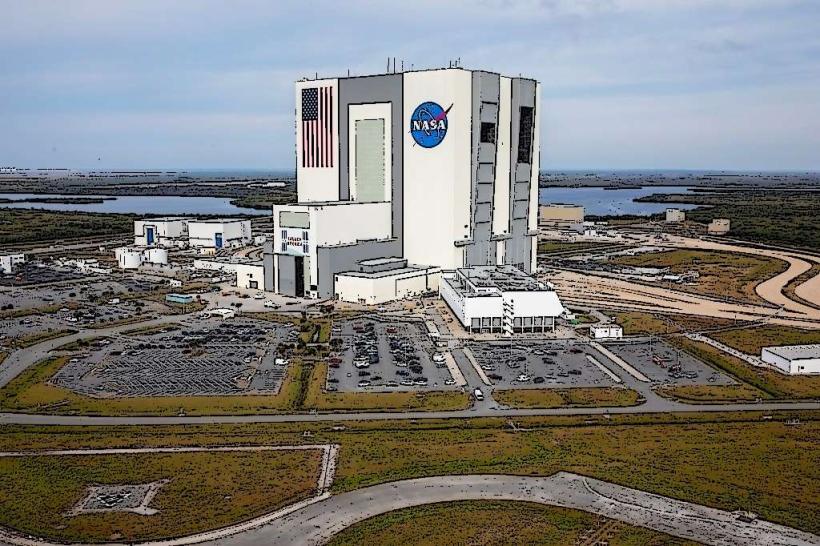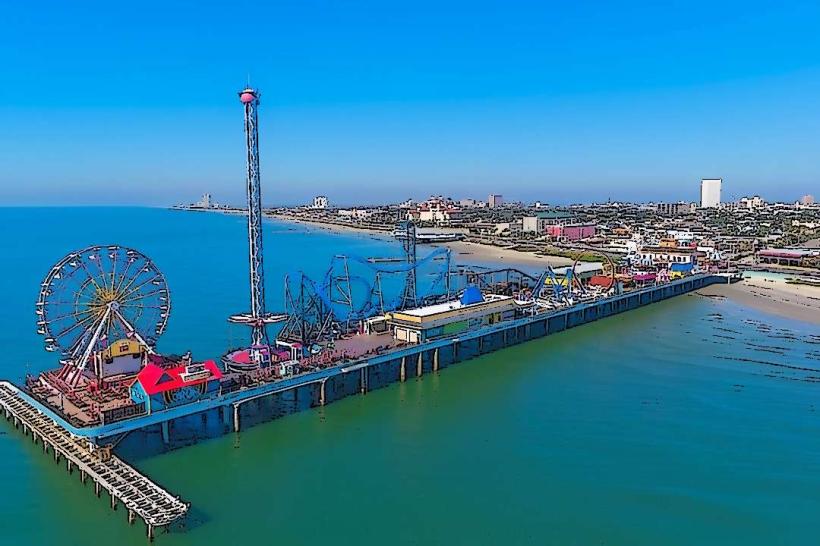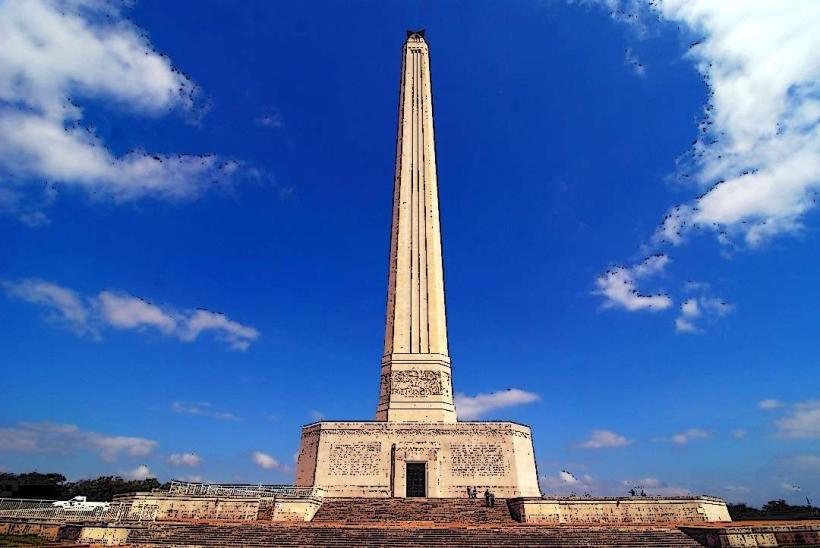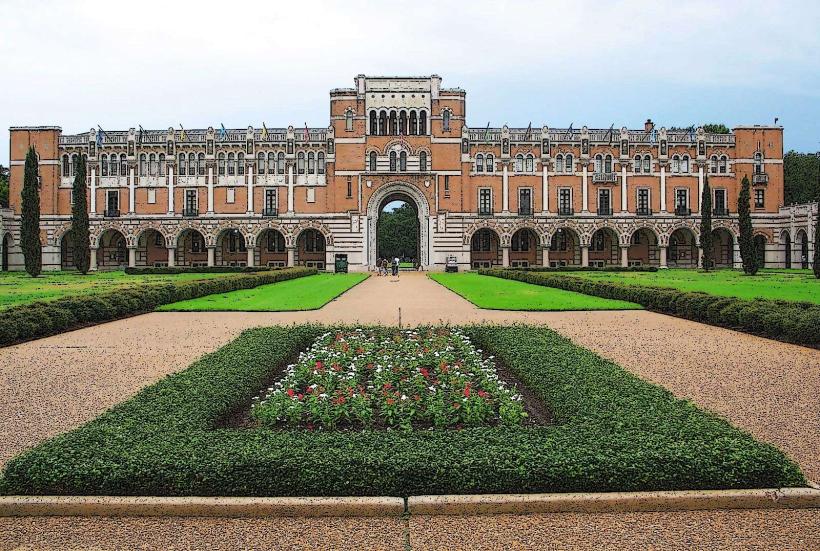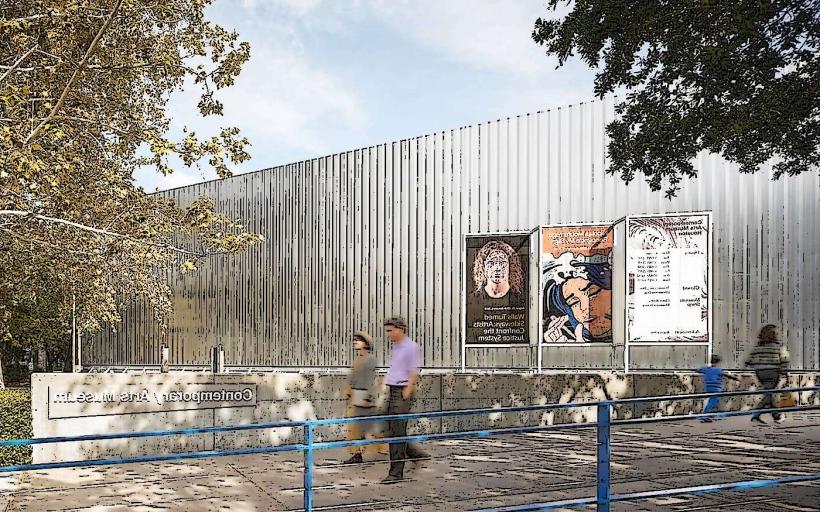Information
Country: USA TexasContinent: North America
USA Texas, North America
Texas is the second-largest state in the United States by both area and population, located in the southern part of the country. It shares borders with Oklahoma to the north, Arkansas to the northeast, Louisiana to the east, New Mexico to the west, and the Mexican states of Chihuahua, Coahuila, Nuevo León, and Tamaulipas to the southwest. It also has a coastline along the Gulf of Mexico to the southeast.
Geography and Climate
Texas features a diverse geography, from arid deserts and mountains in the west to lush forests and coastal plains in the east. The state is divided into several distinct regions:
West Texas: Known for its vast desert landscapes and rugged mountains, including parts of the Chihuahuan Desert and the Trans-Pecos region. It has a dry, hot climate.
Central Texas: This area includes rolling hills and grasslands. It is home to the Texas Hill Country, with more moderate temperatures and a mix of agriculture and urban areas.
East Texas: Characterized by dense forests and pine woodlands, this region has a humid subtropical climate and is known for its lush vegetation.
South Texas: Known for its border with Mexico, this region is influenced by both American and Mexican cultures. The climate is hot and dry in some areas, with more tropical conditions along the Rio Grande Valley.
North Texas: Includes the Dallas-Fort Worth metroplex, with plains and prairie lands. The region experiences a more temperate climate compared to the rest of the state.
Texas experiences a variety of weather patterns, from tornadoes in the north and central areas to hurricanes on the Gulf Coast. The state's climate varies significantly due to its large size, ranging from arid to humid conditions.
Economy
Texas has one of the largest and most diverse economies in the United States. Its economy is driven by industries such as oil and gas, technology, agriculture, and manufacturing. Texas is one of the leading oil producers in the world, with major oil fields located in areas like the Permian Basin. The state is also home to significant natural gas reserves.
Agriculture plays a major role in the Texas economy, with the state being a leading producer of cattle, cotton, poultry, and hay. The state's agricultural exports are significant, especially in terms of cattle and cotton.
Texas has become a hub for technology, with cities like Austin emerging as major centers for innovation and tech startups. The state's favorable business climate, low taxes, and relatively low cost of living have made it an attractive location for tech companies and entrepreneurs.
Population and Demographics
Texas is the second-most populous state in the U.S., with over 30 million residents. The population is diverse, with a significant Latino population, primarily of Mexican descent, especially in areas near the border. The state also has large African American and Anglo-American communities, as well as smaller populations of Asian Americans and other ethnic groups.
The state's major cities, such as Houston, Dallas, San Antonio, and Austin, attract residents from all over the country and the world due to their economic opportunities, cultural diversity, and lifestyle offerings.
Government and Politics
Texas is known for its conservative political leanings, with the state typically voting Republican in national elections. The state government is a republic with a governor as the head of the executive branch, while the legislative branch is bicameral, consisting of a Senate and a House of Representatives. The state also has a strong tradition of states' rights, which has shaped its political culture.
Texas has a unique position within the United States due to its history as an independent nation. It was an independent republic from 1836 to 1845 before joining the United States. This history is a source of pride for many Texans, and the state's culture emphasizes individualism, limited government, and self-reliance.
Education
Texas is home to many prestigious universities and colleges, including the University of Texas system, Texas A&M University, and Rice University. The state's educational system is a mix of public and private institutions, with ongoing efforts to address issues such as funding disparities and access to higher education.
Culture and Lifestyle
Texas is known for its unique blend of cultural influences, particularly from Mexican, Anglo, and African American communities. The state has a rich musical heritage, particularly in country, blues, and Tejano music. Texas is also famous for its distinctive cuisine, which includes barbecue, Tex-Mex, and chili.
Texans take pride in their state identity, often displaying symbols of state pride, such as the Texas flag and the motto "Don't Mess with Texas." The state's culture is heavily influenced by its history of independence, with a focus on personal freedom and a deep love for sports, particularly American football.
Transportation
Texas has a vast and well-developed transportation infrastructure, with an extensive network of highways, railroads, and airports. The state is a major hub for air travel, with airports like Dallas/Fort Worth International Airport and George Bush Intercontinental Airport serving millions of passengers annually. The state's highways connect it to major cities across the country, making it an essential transit point for goods and people.
In addition to highways and air travel, Texas has a strong railroad network, particularly for freight transportation, which plays a crucial role in the state's economy.
Natural Resources and Environmental Issues
Texas is rich in natural resources, including oil, natural gas, coal, and minerals. The state's oil industry has long been a major part of its economy, although there are ongoing discussions about environmental concerns related to energy extraction and the state's reliance on fossil fuels.
The state also faces environmental challenges, such as drought, water scarcity, and air pollution in urban areas. As Texas grows, there are efforts to address these challenges through conservation programs and renewable energy development, with wind energy becoming a significant source of power in the state.
Conclusion
Texas is a dynamic and diverse state with a rich history, thriving economy, and distinct cultural identity. From its vast natural landscapes to its bustling urban centers, Texas offers a unique combination of opportunities and challenges. The state's emphasis on individualism, its blend of cultural influences, and its economic power make it a key player in both national and global affairs.

